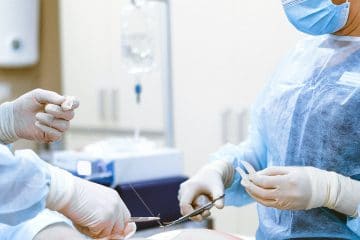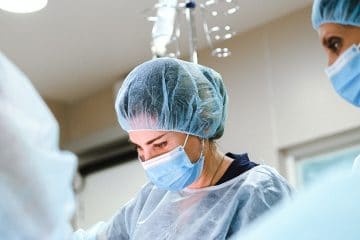What Does Pancreas Do? – Overview
The pancreas is a body organ located at the back of your abdomen (belly). which Your digestive system includes.
The pancreas is an organ and gland. The body’s glands are organs that synthesize and secrete chemicals in your body.
Two primary tasks are carried out by the pancreas:
- Exocrine Function. Produces chemicals (enzymes) that aid in digesting as part of its
- The Function of the Endocrine System. secret hormones that regulate your blood sugar levels.
The exocrine system: What is it?
The glands that produce the substances that pass via a duct. In addition, the exocrine system comprises:
• Breast glands.
• The mucous membranes.
• Prostate.
• Sweat glands.
• Oil-producing sebaceous glands.
• Salivary glands.
Endocrine system: What is it?
The glands secrete hormones into your blood. These glands regulate a large number of bodily processes. The endocrine system includes:
• Suprarenal glands (Adrenal gland).
• Testicles and ovaries.
• Hypothalamus.
• pineal.
• Thyroid gland and parathyroid.
• Thymus.
• The pituitary gland
The role of the pancreas on our digestive system
Our pancreas is important for digesting. It is situated in the back of your stomach, inside the abdomen. Its size is comparable to your hand. It produces fluids called enzymes that help in digesting.
These enzymes disintegrate carbohydrates, lipids, and sugars. Your pancreas also supports your digestive system by producing hormones.
These chemical messengers move throughout your bloodstream. Pancreatic hormones encourage the production of stomach acids, control hunger and blood sugar levels, and signal when the stomach should empty.
Pancreatic Enzymes
To digest food, your pancreas produces pancreatic enzymes, which are natural fluids. Ducts carry these liquids throughout this organ.
They discharge into the duodenum, the upper portion of your small intestine. Your pancreas produces approximately 8 ounces of digestive juice with enzymes daily. The various enzymes are as follows:
Lipase. This enzyme works with the bile your liver generates to break down the fat in your food. Your body will have trouble absorbing fat and the crucial fat-soluble vitamins if you don’t have enough lipase (A, D, E, K). Poor fat absorption is characterized by diarrhea and greasy bowel motions.
Protease. Your diet’s protein is broken down by this enzyme. Additionally, it aids in defending you against microorganisms like certain bacteria and yeast that could reside in your intestines. Some people may experience allergic reactions if proteins are not digested.
Amylase. This enzyme aids in the conversion of starches into sugar, which the body can use as fuel. The undigested carbs may cause diarrhea if you don’t have enough amylase.
Pancreatic hormones
In your body organ, numerous cell types create hormones. Hormones are released into your blood and send signals to other digestive system sections, in contrast to enzymes, which are delivered into your digestive system. Pancreatic hormones consist of:
Both amylin and gastrin. The G cells in your stomach are where most of your body’s gastrin is produced, but your pancreas also produces some. Gastric acid production is prompted by it. Amylin, which is produced in beta cells, aids in regulating hunger and stomach emptying.
Insulin. The pancreatic beta cells are the cells that produce this hormone. About 75% of the cells that make up pancreatic hormones are beta cells. The hormone insulin aids in your body’s utilization of sugar as an energy source. If you don’t get enough insulin, your blood sugar levels rise and you end up with diabetes.
Glucagon. 20% or so of the hormone-producing cells in your pancreas are alpha cells. They generate glucagon. When your blood sugar drops too low, glucagon assists in bringing it back up by instructing your liver to release stored sugar.
How to Keep your Pancreas Healthy?
Maintaining a healthy pancreas involves eating a balanced diet, quitting smoking, and limiting alcohol consumption.
The pancreas needs to be hydrated to remain healthy.
According to the National Pancreatic Foundation,
• Limiting daily fat intake to no more than 20 grams
• Eschewing alcohol
• Keep hydration by drinking lots of water
According to the findings of an animal study published in February 2017, a fasting diet may cause the pancreas to rebuild itself, which may benefit individuals with diabetes.
During a fast, one would consume much less calories than usual. When pancreatic pain flares up, the National Pancreatic Foundation advises using a similar approach. For one to two days, they advise sticking to a clear liquid diet, which includes grape juice.
Anatomy of the pancreatic includes
Head. The area of the organ is broader and rests in the duodenum’s curvature.
Neck. which extends from the head.
Body. The upward-extending portion of the pancreas lies in the midsection, between the head and the neck.
Tail. which is closest to the spleen, and is its thinnest section.
References
https://my.clevelandclinic.org/health/body/21743-pancreas
See Also
Can You Live Without Pancreas?

Dr.Sharif Samir Alijla, is a general medical doctor and a well-rounded professional that cares and treats patients from Palestine. I participated in many medical studies and conferences, I've launched a range of community initiatives and taken part in a variety of leadership and change training programs. I worked as an author for many medical websites such as TebFact . I specialized in writing medical articles from authoritative and updated sources in a simple and smooth the way for the reader.



